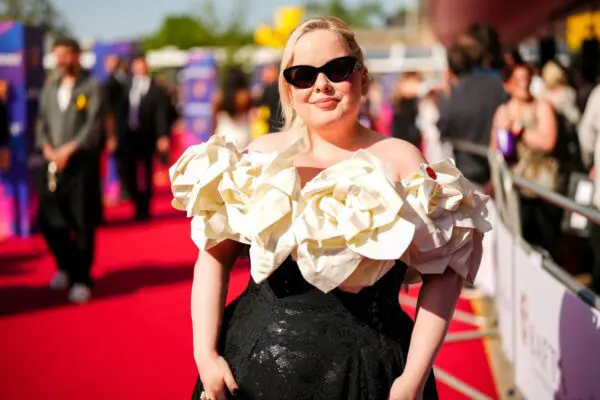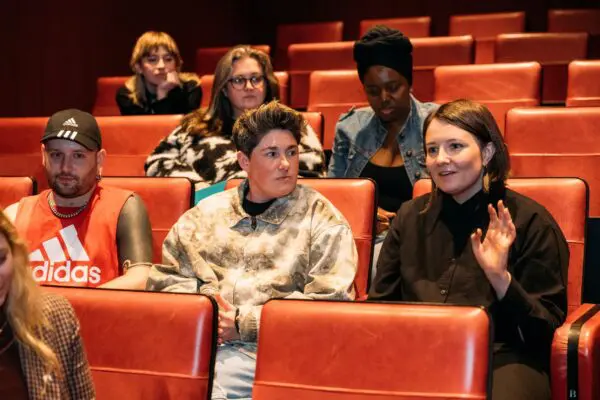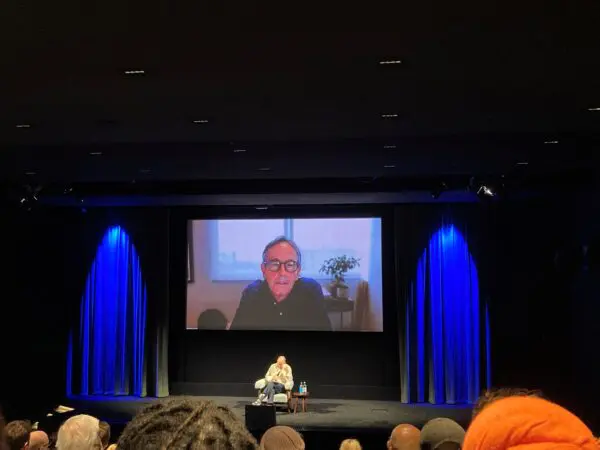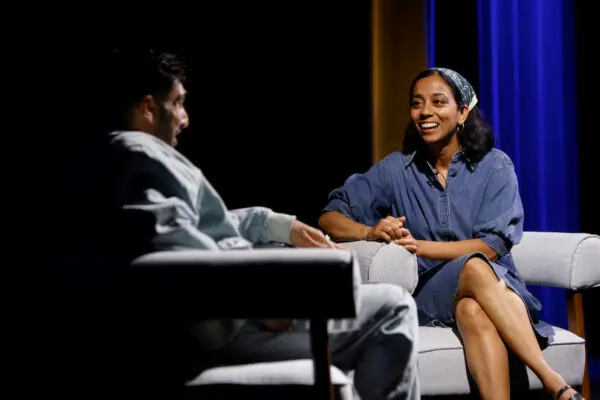We paid tribute to everyone’s favourite time-travelling alien after half a century of extraordinary adventures.
"Hello, I'm the Doctor..."
For fifty years, the two-hearted Time Lord has been battling Daleks, thwarting Cybermen and taking audiences on a multitude of adventures through time and space. Through the ingenious method of regeneration – when the Doctor becomes too old or wounded, he transforms into a new physical form – various actors have been able to play the same role, allowing the show to remain as consistently popular today as when it first began.
To mark a half century or Doctor who, we put together fifty facts about Doctor Who and BAFTA. So sit back, relax, and read more facts than you can shake a sonic screwdriver at…
1. William Hartnell was the first actor to play Doctor Who
Throughout his career Hartnell appeared in many successful British films, including a small but crucial role as a pub owner in Carol Reed’s Odd Man Out (1947), which won the first ever BAFTA for British Film.
2. Canadian film and television producer Sydney Newman is considered one of the key creators of Doctor Who
Newman was Head of Drama at the BBC between 1962-1967, when key dramas such as Cathy Come Home (1966), The Forsyte Saga (1967) – and of course, Doctor Who – were produced. In 1968 BAFTA awarded Newman the Desmond Davis Award for his contribution to British television.
3. Verity Lambert was the original producer of the series
Lambert was responsible for introducing the first Dalek storyline The Dalek (1963-1964), written by Terry Nation. Lambert went on to produce shows such as Rumpole of the Bailey (1978-1992) and Jonathan Creek (1997- ). She was nominated for six BAFTAs, winning twice. The photo below shows Lambert in 1970 being presented with the Drama Series Award for W. Somerset Maugham (1969-1970) from Earl Mountbatten of Burma, no less!
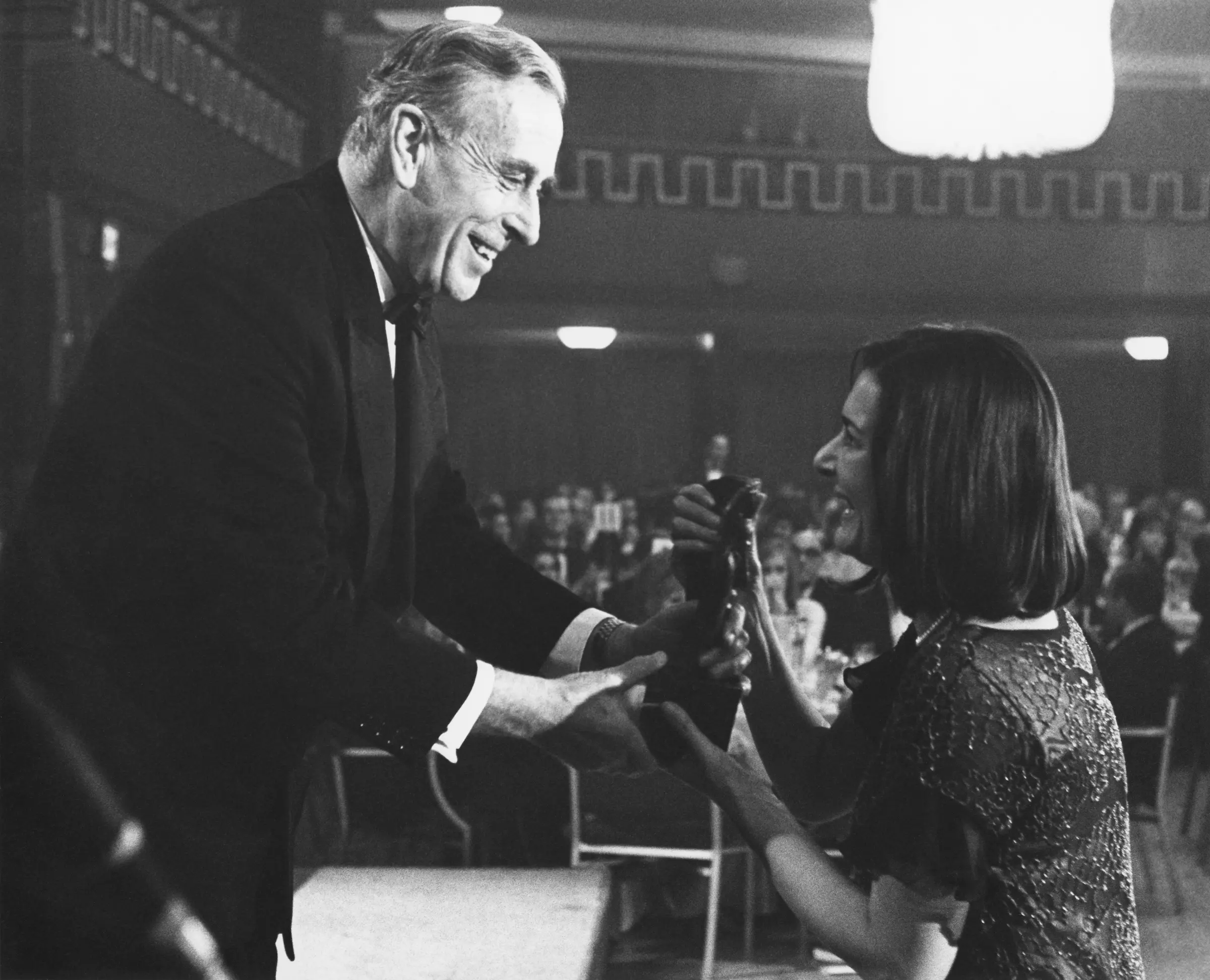
Credit: BAFTA archive
4. The first ever episode of Doctor Who, An Unearthly Child, was directed by Waris Hussein
Hussein was just 24 years old. Hussein would work with producer Lambert again on W. Somerset Maugham and Edward & Mrs. Simpson (1978), the latter which he won a BAFTA for along with writer Andrew Brown in 1979. In 1994 he was BAFTA-nominated for an episode of Screen Two (1985-2002) called The Clothes in the Wardrobe.
5. The show’s theme music was written by Australian composer Ron Grainer
And it was given its iconic electronic arrangement by Delia Derbyshire, who worked at the BBC’s Radiophonic Workshop. Grainer would go on to be BAFTA-nominated in 1981 for his music on Flickers (1980), Shelley (1979-1983) and Tales of The Unexpected (1979-1988). Derbyshire’s life was recently explored in Absolute Genius with Dick & Dom (2013), a series which has been nominated for a Children’s BAFTA Award.
6. The iconic design of the Daleks was created by Raymond Cusick
Cusick was a production designer on Doctor Who on over 40 episodes. He would go on to work on shows such as Z Cars (1962-1975) and The Duchess of Duke Street (1976-1977). In his career he was nominated for three BAFTAs for design.
7.. The first people to ever voice the Daleks were Peter Hawkins and David Graham
Other notable Dalek-voice actors include Roy Skelton and, more recently, Nicholas Briggs. Hawkins and Skelton would both go on to voice the slightly less threatening Zippy from Rainbow (1972-1992), a show which won a BAFTA in 1975. Graham currently voices Grandpa Pig in Peppa Pig (2004 – ), a show which has won four BAFTAs.
8. Louis Marks wrote Planet of the Giants (1964)
It was the first storyline of the second series. Marks continued writing and producing television for over forty years, and was BAFTA-nominated three times in his career for Silas Marner (1985), Middlemarch (1994) and Screen Two (1985-2002).
9. Patrick Troughton was the second actor to play Doctor Who
In 2013, nine lost episodes of Doctor Who – all with Troughton – were discovered in a TV station in Nigeria. Did you know that one of Troughton’s first ever screen appearances was in Laurence Olivier’s Hamlet (1948)? It was the second film to win the BAFTA for Best Film.
10. Jon Pertwee was the third actor to play the Doctor
Pertwee made his debut in the first ever episode broadcast in colour, Spearhead from Space (1970). He played the Doctor during the tenth anniversary episode The Three Doctors (1973), which also starred Hartnell and Troughton. Later in his career, Pertwee famously played the titular character in Worzel Gummidge (1979-1981) which was nominated for seven BAFTAs.
11. One of the Doctor’s most famous companions is Sarah Jane Smith
She was played by Elisabeth Sladen and appeared for the first time alongside Pertwee in The Time Warrior (1973). She reprised her role in The Sarah Jane Adventures (2007-2011), which was nominated for 12 BAFTA Children’s Awards.
12. The fourth Doctor was played by Tom Baker
Baker remains the longest running actor to play the part. He appeared in classic stories such as Genesis of the Daleks (1975) and the Douglas Adams-penned City of Death (1979). In recent years, his unmistakable voice was heard narrating Little Britain (2003-2006); the comedy series won four BAFTAs.
13. The series was BAFTA-nominated for the first time in 1977
At the time Tom Baker was the Doctor. Multi-Coloured Swap Shop (1976-1977) was announced as the Rediffusion Star Awards: Harlequin – Drama/Light winner. In 1978, it was nominated for a second time; this time All Star Record Breakers (1977) won the award.
14. Peter Davison played the fifth Doctor
One of his most famous episodes was the twentieth anniversary special The Five Doctors (1983), which saw Troughton and Pertwee return to the role. His early breakthrough as an actor came in the drama series Love for Lydia (1977), which was nominated for six BAFTAs. His daughter Georgia Moffett starred in The Doctor’s Daughter (2008) opposite the tenth Doctor David Tennant (who she is now married to!).
16. Colin Baker (no relation to Tom) was the sixth actor to play the Doctor
Prior to Doctor Who, Baker appeared in programmes such as The Brothers (1974-1976) and the BAFTA-winning The Citadel (1983). One of Baker’s most famous stories was Revelation of the Daleks (1985). It was directed by Graeme Harper, who would return to direct more recent episodes of Doctor Who, and won a BAFTA Cymru award for the episode Doomsday (2006).
17. Sylvester McCoy replaced Colin Baker as the seventh Doctor
McCoy was the last actor to play him in a full television series until Christopher Eccleston in 2005. Most recently, McCoy has been seen as Radagast in the BAFTA-nominated The Hobbit: An Unexpected Journey (2012).
18. Paul McGann played the Doctor in the 1996 television film Doctor Who
The actor first gained prominence playing Percy Toplis in The Monocled Mutineer (1986), a performance which saw him nominated for a BAFTA in 1987. He recently reprised his role as the Doctor in the mini-episode The Night of the Doctor (2013).
19. After 17 years off television screens – bar McGann’s appearance – Doctor Who returned in 2005
It returned with Christopher Eccleston becoming the ninth Doctor. Eccleston has had a long and successful stage and screen career, and has been nominated for two BAFTAs for his performances in Our Friends in the North (1996) The Second Coming (2003). More recently, he starred as John Lennon in Lennon Naked; listen to him discuss the role.
20. Russell T. Davies was the lead writer on Doctor Who from 2005-2009
Prior to this, he had worked on shows such as Children’s Ward (1989-2000) and Queer as Folk (1999-2000). Davies also created the Doctor Who spin-off show Torchwood (2006- ). In his career he’s been nominated for 11 BAFTAs, winning three times, including the Dennis Potter Award in 2006. Watch him answer our Big Questions below:
